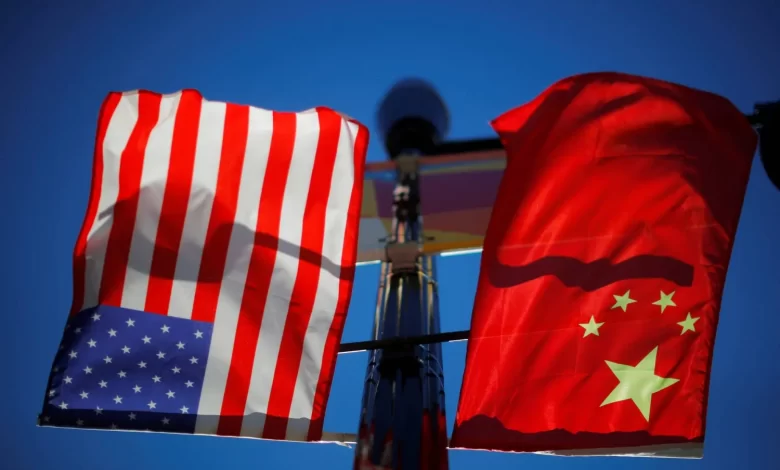InternationalNews
Washington and Beijing Exchange Sanctions Ahead of Trump’s Inauguration

A series of recent cyberattacks attributed to Chinese hackers has heightened tensions between the United States and China, accompanied by mutual sanctions for various reasons. This escalation followed Washington’s accusation that a Chinese group had hacked a highly sensitive division within the U.S. Department of the Treasury, responsible for overseeing economic sanctions imposed on countries or individuals.
Tensions Before Trump’s Inauguration
The escalation of sanctions between the two nations comes just days before the inauguration of President-elect Donald Trump on January 20, further straining already deteriorating relations. Trump has threatened to impose stricter tariffs against Beijing than those during his first term. During his campaign last year, he proposed tariffs of 60% or higher on all imports from China, a move that could trigger a global trade war.
While Trump extended an invitation to Chinese President Xi Jinping to attend his inauguration in Washington, experts believe that even with mutual interest in cooperation, the appointment of several hardliners in Trump’s advisory team, who have expressed a desire to pressure Beijing on issues ranging from “human rights violations” to “unfair trade practices,” may hinder the potential for easing tensions. Experts also warned that the Chinese breach of a critical component of the U.S. national security apparatus could exacerbate the situation.
Major Cyber Breach
Assistant Treasury Secretary Aditi Hardikar described the recent breach as “significant” in her letter to the Senate Banking Committee. She revealed that the Treasury Department was alerted to the breach on December 8 by BeyondTrust, a company whose security program developed for the department had been compromised.
On Friday, the U.S. imposed sanctions on Beijing-based cybersecurity firm Integrity Technology Group for its ties to China’s Ministry of State Security. This came a day after Beijing sanctioned 10 U.S. defense companies over arms shipments to Taiwan.
Washington accused the firm of involvement in multiple cyberattacks targeting U.S. entities. State Department spokesman Matthew Miller said Integrity Tech was a “major contractor for the People’s Republic of China government, with connections to the Ministry of State Security,” providing services to state security and public security offices, as well as other governmental cybersecurity contractors.
“No Hesitation” in Accountability
Miller stated that “cyber hackers working for the Chinese company, known in the private sector as Flax Typhoon, were operating under Chinese government directives, targeting critical infrastructure within and outside the U.S.” Acting Deputy Treasury Secretary for Terrorism and Financial Intelligence Bradley Smith emphasized that the Treasury Department “will not hesitate to hold malicious cyber actors and their sponsors accountable.”
The State Department also reported that Chinese-based hackers had successfully targeted several U.S. and foreign companies, universities, government agencies, telecommunications providers, and media organizations.
In September, the Justice Department announced a court-authorized operation to disrupt a botnet network comprising over 200,000 compromised devices worldwide, attributed to Integrity Tech.
Intensifying Rivalry
U.S. officials stated that targeting the Treasury’s Office of Foreign Assets Control, as well as the Office of the Secretary of the Treasury, reflects Beijing’s determination to gather intelligence about its primary global competitor. Officials noted that Chinese intelligence would be particularly interested in identifying Chinese entities under consideration for U.S. financial sanctions.
The breach also impacted the Treasury Department’s Office of Financial Research. While the full extent of the breach remains under evaluation, the accessed documents were unclassified, and there is no evidence of continued access to Treasury systems.
The Chinese Foreign Ministry dismissed the hacking allegations as “groundless” and reiterated that Beijing “opposes all forms of cyberattacks.”
The U.S. sanctions followed China’s announcement of sanctions on 10 U.S. defense firms, including subsidiaries of major companies like Lockheed Martin, General Dynamics, and Raytheon, over their arms sales to Taiwan.



